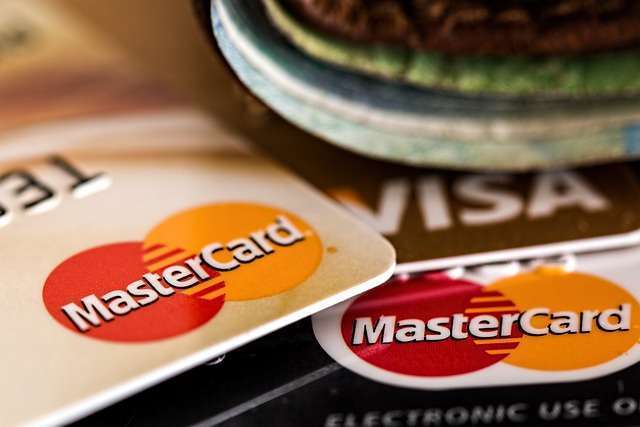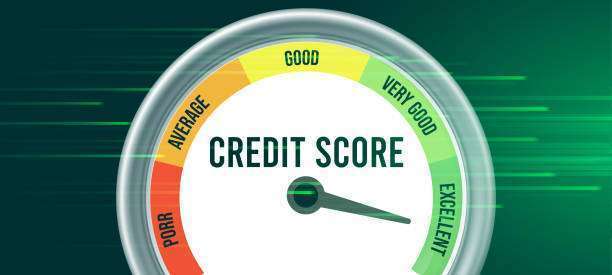6 Tips To Choose the Right Credit Card for Your Business
Choosing the right credit card for your business is a daunting task. With so many credit cards with different offers and perks, it becomes tough to know which one is the best fit for your company.
This article discusses some key tips to help you choose the right credit card for your business.
-
Figure out what kind of credit card you need
To make the best decision for your business, start narrowing down your options. Do you want a card with rewards points? A low interest rate? No annual fee? Know what kind of card you need before you start applying for cards.
The credit limit on business credit cards has to be higher than personal credit cards. If you need help with cash flow or business expenses, choose a card that offers a high credit limit.
Balance transfer credit cards is a good option if you need some breathing room to pay off your debt without accruing interest. These cards offer a low or 0% Annual Percentage Rate (APR) on balance transfers for a promotional period of time. Employee credit cards are a great way to help manage business expenses. Some banks may offer special rates or cards at no additional charges for adding employee cards to your account.
Gauge your business’s current spending habits and predict future spendings when deciding. Do you travel often? Do you entertain clients often? Do you make a lot of purchases online?
If your business is affiliated with a specific brand or retailer, for example, co-branded cards might be a good way to earn rewards when you spend there. These cards usually come with special perks, like rewards points or cash back, when you use them at the affiliated stores. Similarly, if your business spends a lot on travel, you might want to get a card with travel rewards (which brings us to our next tip).
-
Check the perks and rewards
Many credit cards come with perks and rewards like cash back, points that can be redeemed for merchandise, or travel miles. Make sure the perks offered by the card align with your business needs so you can get the most out of your card.
If you’re looking for a business credit card with rewards, compare the different programs to see which one offers the best benefits. For instance, you can get cashback with a Juni card. The card offers discounts at eligible spends such as certain retailers or restaurants.
Selecting a rewards program benefits your business if you calculate the cash value of the perks and rewards.
Remember the perceived value of the points is not always the same as the cash value. For instance, getting 8000 points on a transaction may sound great, but if those points are only worth $5, it’s not as good of a deal as it sounds.
-
Compare interest rates and fees
Interest rates and fees vary widely from card to card. Make sure you compare these carefully before you choose a card so you don’t get stuck with a high-interest rate or an annual fee that’s too high.
Some business credit cards come with annual fees. If you’re choosing between two cards and one has an annual fee and the other doesn’t, compare the benefits of each card to see if the annual fee is worth it. Some banks may charge a 0 percent APR at the beginning. This is a lucrative offer especially if your business faces issues with cash flows, and consequently carries a balance from month to month.
However, if some banks are luring you in with attractive chargebacks, they might be charging you a higher fee in foreign transaction fees and ATM fees, etc.
Typically, cards with annual fees offer better rewards programs or lower interest rates. The interest rate on business credit cards is often higher than personal credit cards. Always look for a credit card with a low-interest rate. Don’t end up paying more in interest than you earn in rewards. A good rule of thumb is to have a reasonable balance between interest rates and rewards.
-
Check your credit score
Before you apply for a business credit card, check your personal and business credit scores. This will give you an idea of which cards you’re likely to be approved for and what interest rates you may qualify for.
Credit score is one of the factors that banks use to decide whether to approve your application and what interest rate to offer you.
Most financial experts recommend having a credit score of 740 or higher before applying for a credit card. If your credit score is below 740, you will be able to get a business credit card, but the terms might not be very favorable.
If you’re not confident about your credit score, ask around. Get recommendations from other businesses in your niche. Talk to business owners in your industry and see what cards they use and why. This can be a great way to get first-hand insights into which cards offer the best benefits for businesses like yours.
-
Read the fine print
Before you apply for any credit card, make sure you read all of the fine print carefully. This includes things like the interest rate, grace period, balance transfer fee, and more. You don’t want to be surprised by any hidden fees later on down the road.
For instance, your business might purchase something from an online store on a credit card installment plan. Suppose, after you placed the order, it got canceled by the vendor. By that time the bank already knows that you’ve subscribed for the installment plan and their system has taken a record of the amount (which will be generated on your next monthly bill.)
You, as a customer, are surprised to see the charges for a product that you never received. Then, after reading the terms and conditions carefully, you realize that you had to call the bank and cancel the installment plan – something you agreed to when opting to buy that product. Therefore, you were legally bound to pay for the product, even if you never received it.
This is just one example of how the nitty-gritty of the fine print can cost you. Take your time and read through the terms and conditions before applying for any credit card.
-
Choose a reliable bank
There are many different banks that offer credit cards. When you’re choosing a bank, it’s important to consider things like customer service and their reputation.
Go for a bank that gives a credit card with fraud protection.
This way, if your card is ever lost or stolen, you can report it and get a new one without having to worry about fraudulent charges. Regardless of whether your credit card offers fraud protection or not, you should know the tips to avoid business credit card fraud.
It pays off to select a bank that you’ve been doing business with for a long time. Such a bank will sincerely help you understand the terms of the credit card agreement and how it affects your business.
Your relationship with the banker is important for situations when you can’t make a payment on time. The banker might be more likely to work with you if you’ve been a good customer in the past and might also give you valuable financial advice.
Wrapping up the tips to choose the right credit card
Choosing the right credit card for your business is overwhelming, but it doesn’t have to be if you know what to look for. Make sure you compare different offers before you decide which card is right for your business.
Take time in selecting a credit card – one that will benefit your business in the long run.
Keep these tips in mind when choosing a credit card for your business:
- Select a reliable bank.
- Remember to choose a credit card that is beneficial for the business in the long run.
- Consider features like rewards programs, interest rates, fees, and credit limits when you’re comparing cards.
- Try to maintain an excellent credit score.
- Sometimes, the rewards may not be worth the annual fee you have to pay for the card.
- Just be sure to read the fine print before you apply, so that you’re aware of any hidden fees beforehand.
Good luck in finding the perfect fit for your business.





![Entrepreneurial Story of the Igwe Twins [Started as Office Cleaners]](https://thetotalentrepreneurs.com/wp-content/uploads/2016/09/Entrepreneurial-Story-of-the-Igwe-Twins-Started-as-Office-Cleaners-SpeedMeals-Mobile-Kitchen.png)
